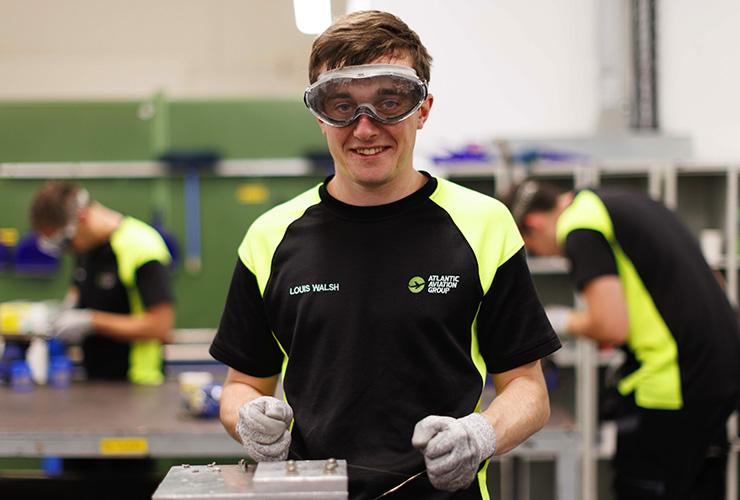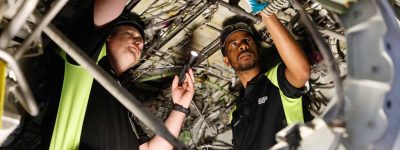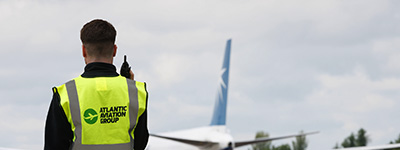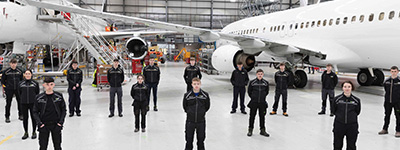4 YEAR APPRENTICESHIP
Applications are now CLOSED for our 2025 programme!
Our prestigious Aircraft Maintenance Engineering Apprenticeship programme has produced award-winning apprentices at both national and international levels.
Successful completion of this apprenticeship leads to obtaining an Aircraft Maintenance Licence and the opportunity to work in an exciting industry.
What Does an Aircraft Maintenance Engineer Do?
Aircraft Maintenance Engineers (AMEs) are employed throughout the aviation industry, responsible for inspecting, maintaining, modifying, and repairing airframes, engines, and avionics.
The role includes a significant amount of sheet metal repairs and corrosion removal during hangar visits. The aviation industry is regulated by the European Aviation Safety Agency (EASA), the Federal Aviation Administration (FAA) in America, and the Irish Aviation Authority (IAA).
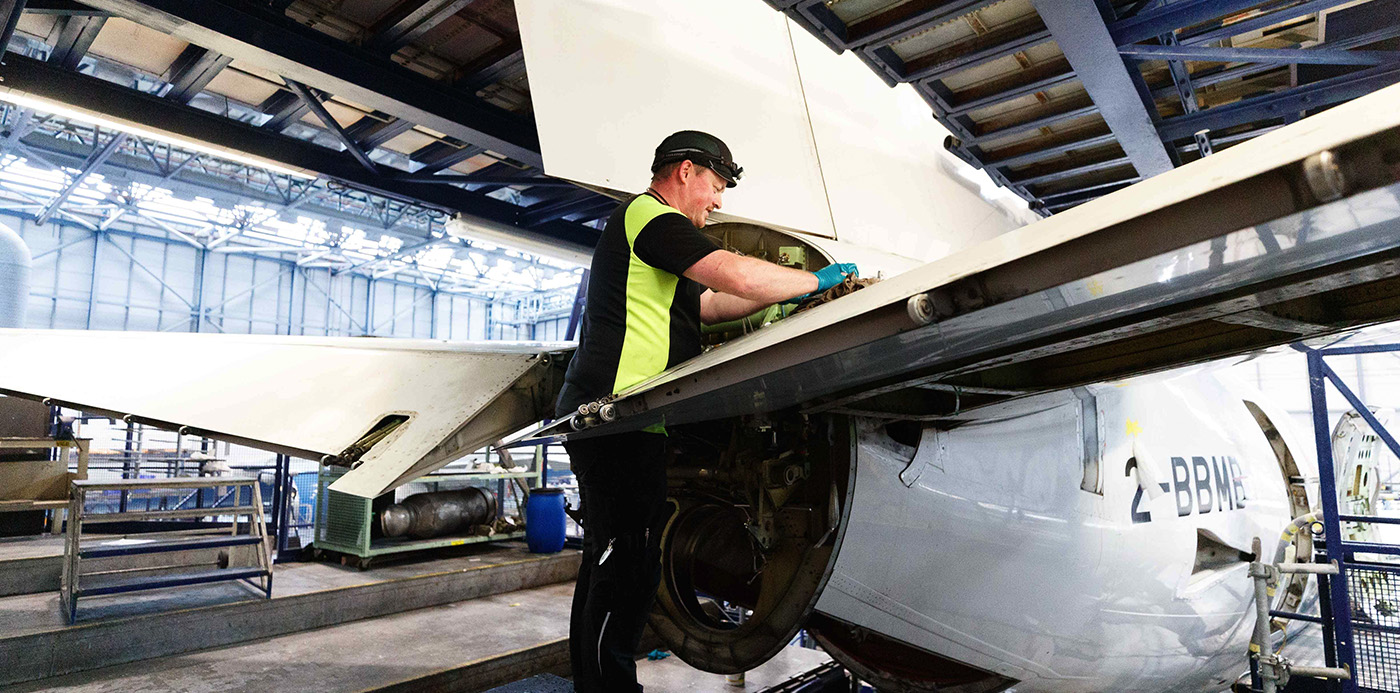
Course Overview:
The apprenticeship programme covers a wide range of topics including:
- Engineering fundamentals
- Introduction to avionics
- Aircraft structures
- Jet engines and systems
Upon completion, apprentices are awarded the National Craft Certificate by Quality Qualifications Ireland and an Aircraft Maintenance Engineers Licence by the Irish Aviation Authority. This licence is internationally recognised.
Learn from the Best:
Our qualified trainers and assessors use proven training methods and goals with each student. We believe that quality speaks for itself, whether it is in Aircraft Maintenance or in training our staff. The high quality of our service is recognised throughout the industry.
Programme Structure:
Technical Training (Off-the-Job): This includes practical skills combined with theory, covering:
- Maths
- Science
- Drawing
- Personal development skills
Training is conducted at SOLAS Training Centre Shannon, DIT-Bolton Street, Dublin, or another suitable facility. Apprentices must pass various tests including practical, short answer, multiple-choice, and coursework assessments. During block release, SOLAS provides wages and an allowance for accommodation expenses.
Practical Training (On-the-Job): This involves practical work experience with an employer, where apprentices gain skills and knowledge while being assessed on specific tasks.
Duration:
The four-year programme includes five phases of training:
- Phase 1: 4 Weeks On-the-Job
- Phase 2A: 32 Weeks Off-the-Job
- Phase 3A: 5 Weeks Practical Training On-the-Job
- Phase 3A: 1 Year On-the-Job Experience
- Phase 2B: 8 Weeks Off-the-Job
- Phase 3B: 6 Weeks Practical Training On-the-Job
- Phase 4: 35 Weeks Off-the-Job
- Phase 5: 5 Weeks Practical Training On-the-Job
- Phase 6: 1 Year On-the-Job Experience
Learning Outcomes:
Apprentices will achieve an Aircraft Maintenance Engineers Licence, broken down into various EASA Part 66 Modules B1 (Aeroplane with Turbine Engines), covering subjects such as:
- Mathematics
- Physics
- Electrical and Electronic Fundamentals
- Digital Techniques
- Maintenance Practices
- Basic Aerodynamics
- Human Factors
- Aviation Legislation
- Gas Turbine Engines
Qualifications:
Upon completion, apprentices receive a Level 6 Advanced Certificate Aircraft Mechanic & PART 66 Aircraft Maintenance Licence.
Pay:
Apprentice pay is based on a percentage of a qualified tradesman’s pay scale, increasing annually over the four years in line with industry standards.
Entry Requirements:
- Must be over 17 years of age on April 1st, 2025
- Must be an Irish, EU, or UK citizen
- Must have completed the Leaving Certificate, or equivalent, with specific grades in Mathematics and English
- Must pass medical and colour vision tests, and airport security vetting
Career Opportunities:
Graduates have a wide range of career opportunities available, including international positions, due to the internationally recognised Aircraft Maintenance Engineers Licence.
Application Process
- Complete the online application form.
- Round 1: Aptitude test in general and mechanical reasoning.
- Round 2: Assessment by a panel of examiners.
- Round 3: Final selection based on meeting all requirements, including Leaving Certificate results.
For further inquiries, contact: Apprentice Recruitment Section, Atlantic Aviation Group, Shannon Airport, Co Clare, Ireland.
Please note: Applications have now CLOSED for our 2025 programme.
